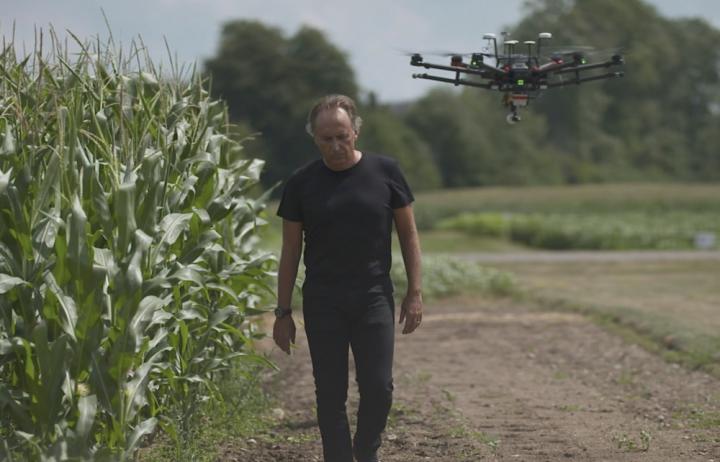
Credit: Michigan State University
In a study published in Nature Sustainability, an ecosystem scientist and an agricultural economist outline how to develop a more sustainable land management system through data collection and stakeholder buy-in.
Bruno Basso, professor in the College of Natural Science at Michigan State University, and John Antle, professor of Applied Economics at Oregon State University, believe the path begins with digital agriculture — or, the integration of big data into crop and farmland usage.
Digital agriculture, Basso says, is where agriculture, science, policy and education intersect. Putting that data to use requires an effective balancing of competing economic and social interests while minimizing trade-offs.
Technologies like genetic modification and crop production automation help produce more food than we need to survive. And while the modern food system is a monument to human ingenuity and innovation, it is not without problems.
“Agriculture’s contributions to greenhouse gas emissions, water pollution and biodiversity loss show that major agricultural systems are on a largely unsustainable trajectory,” Basso says. “And as the population increases, energy demands and pollution will scale accordingly.”
Basso says that while policymakers, farmers and environmental groups are all speaking, they are not necessarily listening.
“There are too many barriers, too many competing interests,” Basso says. “We need to bring people to the table and design a system that works for everyone — farmers, lawmakers, society and future generations.”
To meet this challenge, the researchers proposed a two-step process. The initial step focuses on the design of a sustainable framework — with goals and objectives — guided and quantified by digital agriculture technologies. Implementation, the second step, involves increased public-private investment in technologies like digital agriculture, and a focus on applicable, effective policy.
This paper links advancements in agronomic sciences to the critical role policymakers must play in implementation and setting the agenda for sustainability in agriculture.
“It does no good to design a policy that the farmer will ignore,” Basso says. “Policymakers must make use of digital agriculture to help drive policy. Go to the farmers and say, ‘we will help you make these transitions, and we will help you transform your poorly performing and unstable field areas with financial support.'”
He recommends targeted tax incentives and subsidies to support farmers working toward a more sustainable system.
If the objective is to increase biodiversity, to reduce nitrogen fertilizer use or to grow less resource-intensive bioenergy perennials, incentivization is key.
The researchers’ analysis showed that if nitrogen fertilizer applications were based on demand and yield stability instead of uniform application, usage in the Midwest could be reduced by 36% with significant reductions in groundwater contamination and carbon dioxide emissions.
Basso says that we need to make these decisions as a society – and to brunt the cost as a society. What farmers do on their land today will affect their neighbor’s grandchildren in 30 years.
“Making use of digital agriculture is about breaking bread and creating a sustainable agricultural system. Let’s bring everyone together,” Basso said.
###
(Note for media: Please include a link to the original paper in online coverage: https:/
Michigan State University has been working to advance the common good in uncommon ways for 160 years. One of the top research universities in the world, MSU focuses its vast resources on creating solutions to some of the world’s most pressing challenges, while providing life-changing opportunities to a diverse and inclusive academic community through more than 200 programs of study in 17 degree-granting colleges.
For MSU news on the Web, go to MSUToday. Follow MSU News on Twitter at twitter.com/MSUnews.
Media Contact
Caroline Brooks
[email protected]
Original Source
https:/
Related Journal Article
http://dx.




